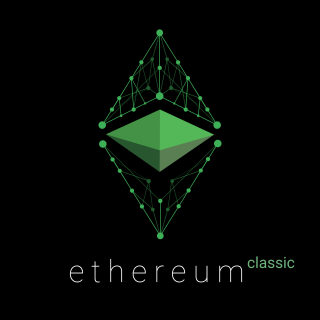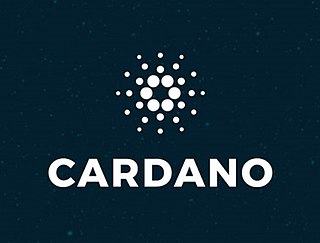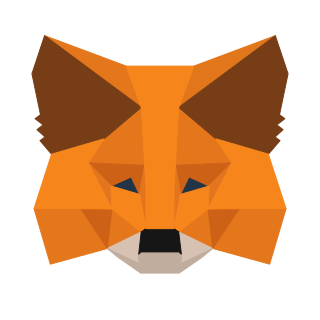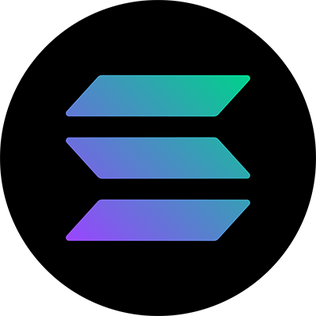Litecoin is a decentralized peer-to-peer cryptocurrency and open-source software project released under the MIT/X11 license. Inspired by Bitcoin, Litecoin was among the earliest altcoins, starting in October 2011. In technical details, the Litecoin main chain shares a slightly modified Bitcoin codebase. The practical effects of those codebase differences are lower transaction fees, faster transaction confirmations, and faster mining difficulty retargeting. Due to its underlying similarities to Bitcoin, Litecoin has historically been referred to as the "silver to Bitcoin's gold." In 2022, Litecoin added optional privacy features via soft fork through the MWEB upgrade.

Ethereum is a decentralized blockchain with smart contract functionality. Ether is the native cryptocurrency of the platform. Among cryptocurrencies, ether is second only to bitcoin in market capitalization. It is open-source software.
A decentralized autonomous organization (DAO), sometimes called a decentralized autonomous corporation (DAC), is an organization managed in whole or in part by decentralized computer program, with voting and finances handled through a blockchain. In general terms, DAOs are member-owned communities without centralized leadership. The precise legal status of this type of business organization is unclear.

Augur is a decentralized prediction market platform built on the Ethereum blockchain. Augur is developed by Forecast Foundation, which was founded in 2014 by Jack Peterson, Joey Krug, and Jeremy Gardner. Forecast Foundation is advised by Ron Bernstein, founder of now-defunct company Intrade, and Ethereum founder Vitalik Buterin.
Consensys is a private blockchain software technology company founded by Joseph Lubin and based in Fort Worth.

The DAO was a digital decentralized autonomous organization and a form of investor-directed venture capital fund. After launching in April 2016 via a token sale, it became one of the largest crowdfunding campaigns in history, but it ceased activity after much of its funds were taken in a hack in June 2016.

Ethereum Classic is a blockchain-based distributed computing platform that offers smart contract (scripting) functionality. It is open source and supports a modified version of Nakamoto consensus via transaction-based state transitions executed on a public Ethereum Virtual Machine (EVM).

Cardano is a public blockchain platform. It is open-source and decentralized, with consensus achieved using proof of stake. It can facilitate peer-to-peer transactions with its internal cryptocurrency, ADA.
An initial coin offering (ICO) or initial currency offering is a type of funding using cryptocurrencies. It is often a form of crowdfunding, although a private ICO which does not seek public investment is also possible. In an ICO, a quantity of cryptocurrency is sold in the form of "tokens" ("coins") to speculators or investors, in exchange for legal tender or other cryptocurrencies such as Bitcoin or Ether. The tokens are promoted as future functional units of currency if or when the ICO's funding goal is met and the project successfully launches.

CryptoKitties is a blockchain game developed by Canadian studio Dapper Labs. The game allows players to buy, sell, and create NFTs using on Ethereum. These NFTs represent virtual cats. The game's popularity in December 2017, congested the Ethereum network, causing it to reach an all-time high in the number of transactions and slowing it down significantly.
A cryptocurrency bubble is a phenomenon where the market increasingly considers the going price of cryptocurrency assets to be inflated against their hypothetical value. The history of cryptocurrency has been marked by several speculative bubbles.

TRON is a decentralized, blockchain-based operating system with smart contract functionality, proof-of-stake principles as its consensus algorithm and a cryptocurrency native to the system, known as Tronix (TRX). It was established in March 2014 by Justin Sun and since 2017 has been overseen and supervised by the TRON Foundation, a non-profit organization in Singapore, established in the same year. It is open-source software.
Decentralized finance offers financial instruments without relying on intermediaries such as brokerages, exchanges, or banks by using smart contracts on a blockchain, mainly Ethereum. DeFi platforms allow people to lend or borrow funds from others, speculate on price movements on assets using derivatives, trade cryptocurrencies, insure against risks, and earn interest in savings-like accounts. DeFi uses a layered architecture and highly composable building blocks. Some applications promote high-interest rates but are subject to high risk. Coding errors and hacks have been common in DeFi.

MetaMask is a software cryptocurrency wallet used to interact with the Ethereum blockchain. It allows users to access their Ethereum wallet through a browser extension or mobile app, which can then be used to interact with decentralized applications. MetaMask is developed by ConsenSys Software Inc., a blockchain software company focusing on Ethereum-based tools and infrastructure.

Uniswap is a decentralized cryptocurrency exchange that uses a set of smart contracts to execute trades. It is an open source project and falls into the category of a DeFi product because it uses smart contracts to facilitate trades. The protocol facilitates automated transactions between cryptocurrency tokens on the Ethereum blockchain through the use of smart contracts. As of October 2020, Uniswap was estimated to be the largest decentralized exchange and the fourth-largest cryptocurrency exchange overall by daily trading volume.

CryptoPunks is a non-fungible token (NFT) collection on the Ethereum blockchain. The project was launched in June 2017 by the Larva Labs studio, a two-person team consisting of Canadian software developers Matt Hall and John Watkinson. The experimental project was inspired by the London punk scenes, the cyberpunk movement, and electronic music artists Daft Punk. The crypto art blockchain project was an inspiration for the ERC-721 standard for NFTs and the modern crypto art movement, which has since become a part of the cryptocurrency and decentralized finance ecosystems on multiple blockchains.
Chainlink is a decentralized blockchain oracle network built on Ethereum. The network is intended to be used to facilitate the transfer of tamper-proof data from off-chain sources to on-chain smart contracts. Its creators claim it can be used to verify whether the parameters of a smart contract are met in a manner independent from any of the contract's stakeholders by connecting the contract directly to real-world data, events, payments, and other inputs.
Stacks, formerly Blockstack, is a blockchain platform for smart contracts, decentralized finance ("DeFi"), NFTs, and decentralized apps ("DApps"). Stacks blockchain is a layer for bitcoin similar to the Lightning Network.

Solana is a blockchain platform which uses a proof-of-stake mechanism to provide smart contract functionality. Its native cryptocurrency is SOL.
Tokenomics, also known as token economics, is an emerging field concerned with the economic properties of agent-driven systems that use cryptographic tokens that are typically created and managed on blockchain-based distributed ledgers.











